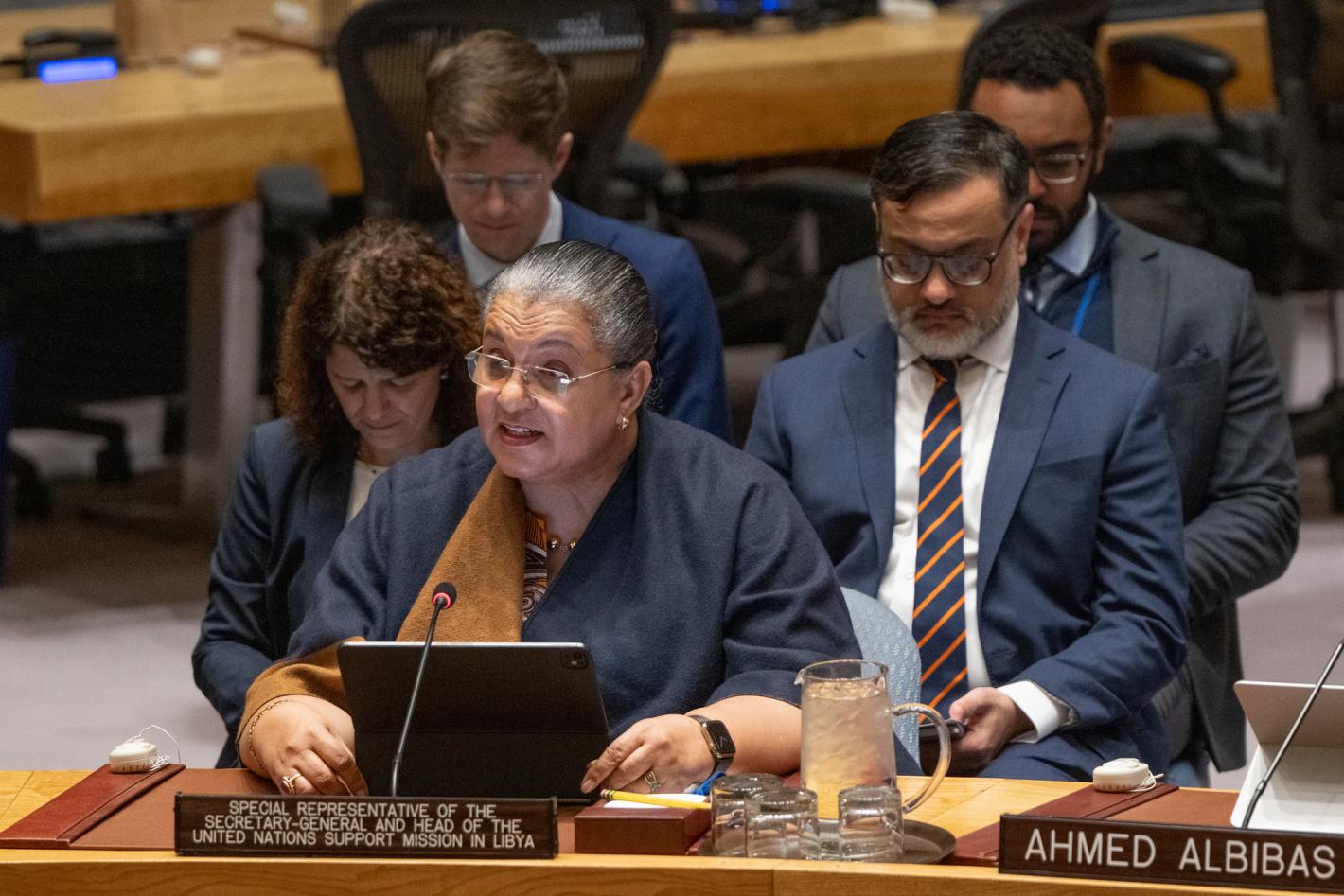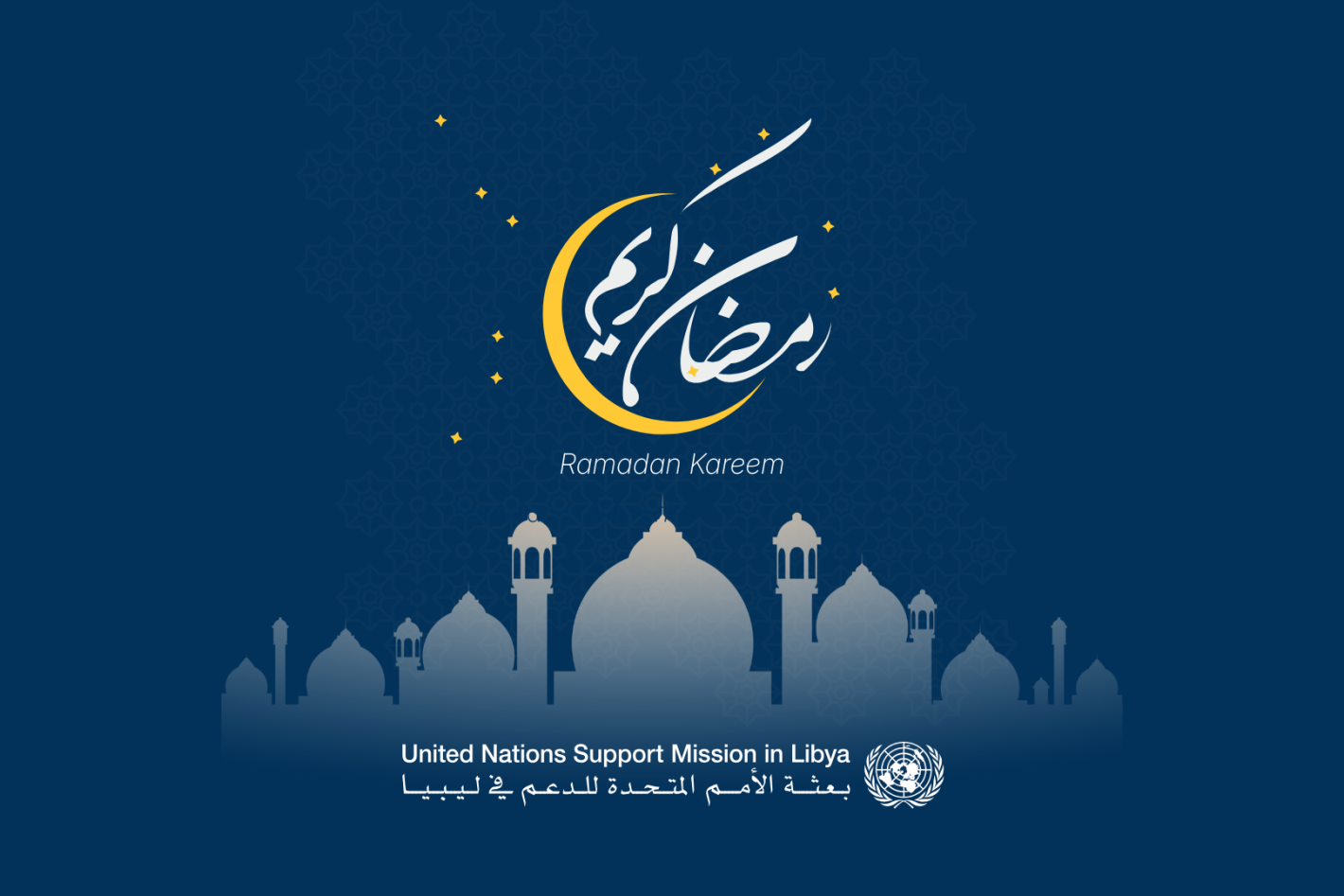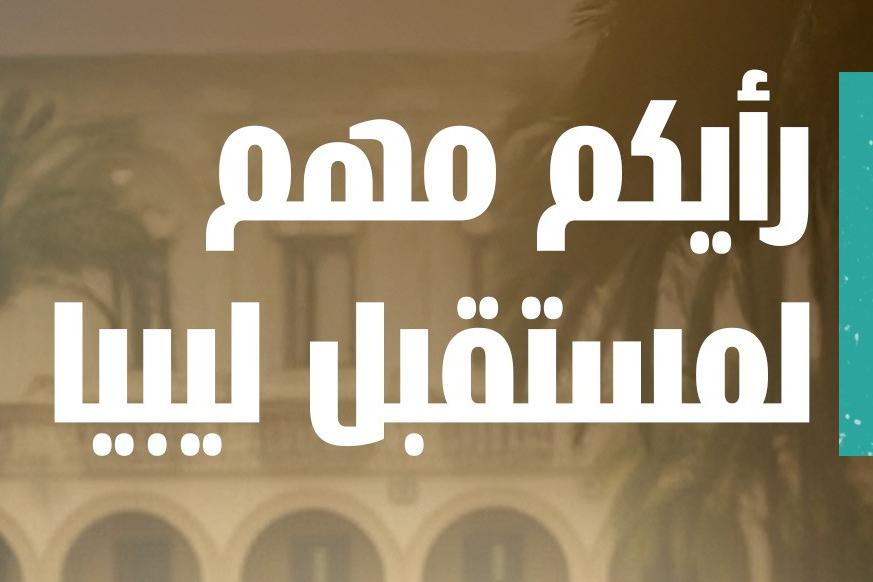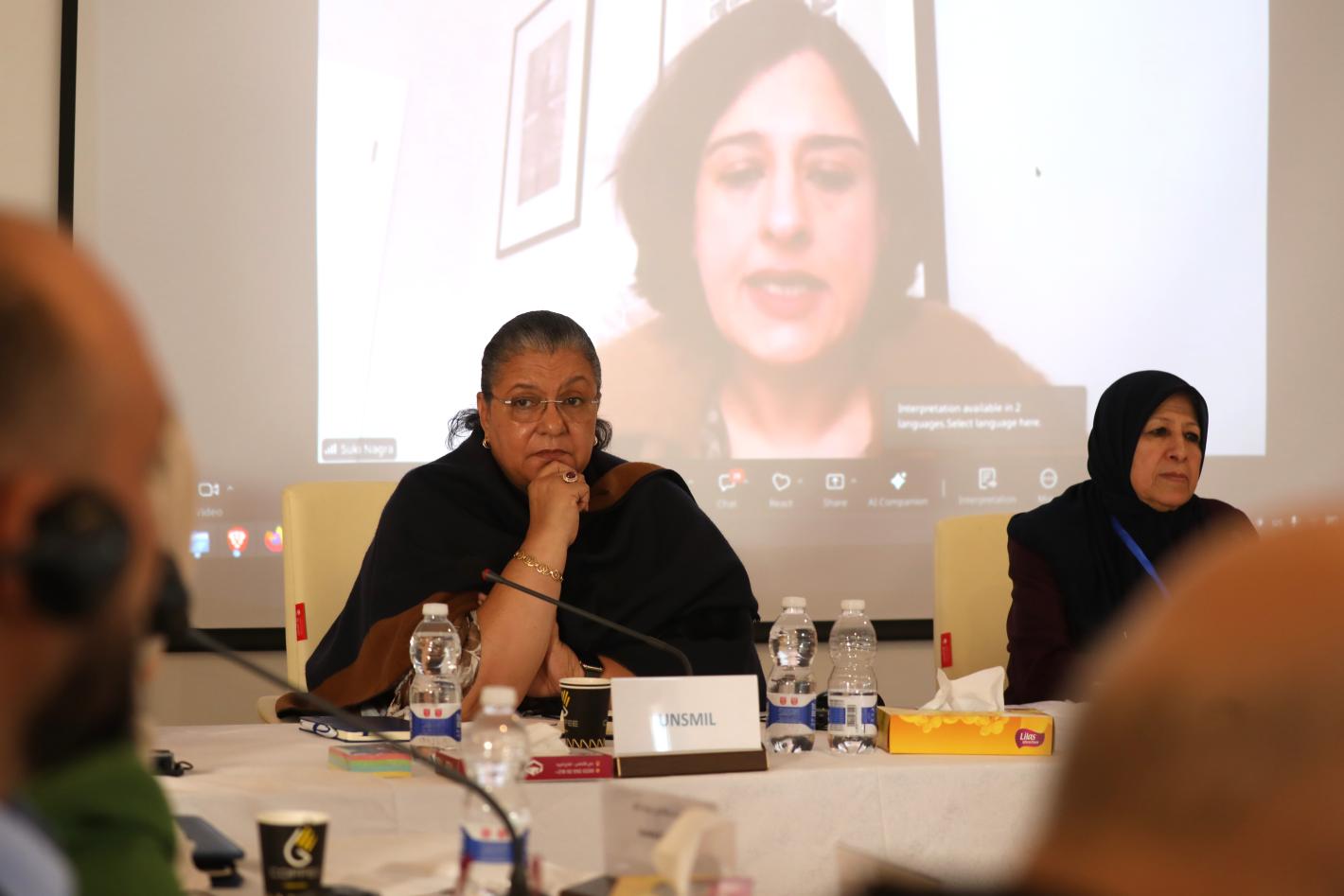- أود أن أرحب بكم جميعًا في تونس وأشكركم على حضوركم معنا اليوم، أود أن أعرب عن شكري للمجلس الأعلى للدولة على دعمه لهذه المبادرة التي تيسرها الأمم المتحدة.
- وأثني على مشاركتكم والتزامكم بهذه المهمة البالغة الأهمية المتمثلة في تحديد القاعدة الدستورية اللازمة لإنجاز الانتخابات الوطنية في بلادكم.
- وكما لاحظتم ، لم يتم بعد وصول نظرائكم من مجلس النواب، غير أننا ما زلنا نتوقع أن ينضموا إلينا قريبا ، حتى نتمكن من الشروع رسميا في عمل اللجنة المشتركة لتحديد القاعدة الدستورية.
- في غضون ذلك ، أقترح أن نستفيد جيدًا من هذا الوقت لإجراء مشاورات متعمقة لتحضير للاجتماع الرسمي مع وفد مجلس النواب، وبإمكان هذه المشاورات ان توفر فرصة جيدة لطرح ومناقشة آرائكم ومقترحاتكم.
- تمر ليبيا بمنعطف هام الآن، ويتعين علينا جميعًا احترام إرادة 2.8 مليون ليبي سجلوا أسماءهم للتصويت. الوعد بإجراء الانتخابات يعتمر قلوب وعقول الشعب الليبي الذي يريد ويستحق انتخاب قيادته منذ الانتخابات الأخيرة قبل ثماني سنوات.
- في تواصلي مع الجميع، سعيت إلى إسماع أصوات الناخبين المسجلين، ودعوت باستمرار الأطراف المعنية السياسية إلى احترام وتحقيق الحقوق السياسية للشعب الليبي في اختيار قادته من خلال صناديق الاقتراع.
- أتطلع إلى اغتنام هذه الفرصة للتشاور معكم بشأن العناصر العديدة من القاعدة الدستورية لفهم وجهات نظركم ورؤيتكم على نحو أفضل والبحث في سبل إيجاد نقاط محتملة لتوافق الآراء.
***
- كان للأمم المتحدة التزام طويل الأمد بالمسار الدستوري الذي يستحق إعادة النظر فيه. واذكر أننا قد عقدنا اجتماعا في القاهرة في أكتوبر 2020 مع 10 مشاركين من كلا المجلسين، حيث تمت مناقشة مسألتين: مشروع الدستور والقاعدة الدستورية التوافقية. ومع ذلك، ركز هذا الاجتماع في الغالب على المواد الخلافية في مسودة الدستور وانتهى دون اتفاق.
- اجتمعت اللجنة مرة أخرى في شهري يناير وفبراير 2021 في الغردقة. خلال الاجتماع الأول في يناير لم يتوصل الوفد إلى اتفاق حول المواد الخلافية في مشروع دستور 2017 ، غير انهم وافقوا على إجراء الاستفتاء على أساس القانون القائم. وفي اجتماعها الثاني بالغردقة تم الاتفاق على مطالبة المفوضية الوطنية العليا للانتخابات بتنظيم استفتاء. في حالة عدم إمكانية إجراء استفتاء، تم الاتفاق على أن يتبع المجلسان قاعدة دستوريًة، على النحو المنصوص عليه في مسودة وثيقة تتكون من 57 مادة (مقترح لجنة فبراير). لكن لسوء الحظ بعد عودة الاتفاقية إلى المجلسين المعنيتين ، وافق المجلس الأعلى للدولة على ذلك ، في حين قرر مجلس النواب أن التوافق لم يعد متبادلاً.
- ونظرًا لعدم قدرة اللجنة الدستورية للمجلسين على التوصل إلى توافق دائم ، عقدت اللجنة القانونية ملتقى الحوار السياسي الليبي 16 اجتماعا بين فبراير وأبريل 2021 وتوصلت إلى اتفاق مبدئي على قاعدة دستورية ، على الرغم من بقاء عدد من القضايا عالقة. لا يمكن حل هذه القضايا على الرغم من الجهود المتعددة داخل الجلسة العامة لملتقى الحوار السياسي الليبي واللجان المخصصة التي تم إنشاؤها لاحقًا.
- أود أن أشير إلى أنني كنت داعمة أيضا لذلك التوافق، الذي حصل إلى حد ما، والذي تمخض عن إصدار التعديل الدستوري رقم 12 و أود أن أشير أيضاً إلى أن ذلك التوافق قد كان مصدر الهام لنا لدعوتكم ومجلس النواب لتوحيد المجلسين في هذا الجهد لتحديد القاعدة الدستورية للانتخابات الوطنية.
- والان، ومع التجربة الانتخابية في كانون الأول (ديسمبر) 2021 كتذكير هام بأهمية إجراء الانتخابات على قاعدة دستورية وقانونية متينة، لديكم الآن فرصة جديدة للبناء على العمل الذي تم إنجازه مسبقا، وعملتم جادين للتوصل إلى توافق في الآراء بشأن إطار دستوري من شأنه أن يسمح بإجراء انتخابات وطنية شاملة ونزيهة وشفافة.
- سوف تتطرقون إلى أسئلة حساسة وصعبة ، حول النظام السياسي المستقبلي في بلادكم ليبيا، ومعايير الأهلية والإطار الانتخابي ، من بين قضايا رئيسية أخرى. لكنني أؤمن بمهنيتكم والتزامكم بالوطن وتفانيكم في المصلحة العليا للشعب الليبي.
- أنتم تلعبون دورا حاسما في إسماع صوتكم لدعم نحو ثلاثة مليون مواطن ليبي سجلوا أسماءهم للتصويت. وبإمكانكم المساعدة في إسماع أصواتهم من خلال تمهيد الطريق للانتخابات من خلال تحديد هذه القاعدة الدستورية حتى تتمكن الأجيال القادمة من العيش في ليبيا الموحدة والمزدهرة والآمنة.
- نحن هنا كأمم متحدة للمساعدة في تسهيل هذا التوافق ، مدركين للدور الجوهري للمجلسين في الاتفاق على أساس دستوري وذلك ضمن تفويضنا لتسهيل إجراء الانتخابات في أقصر إطار زمني ممكن.






